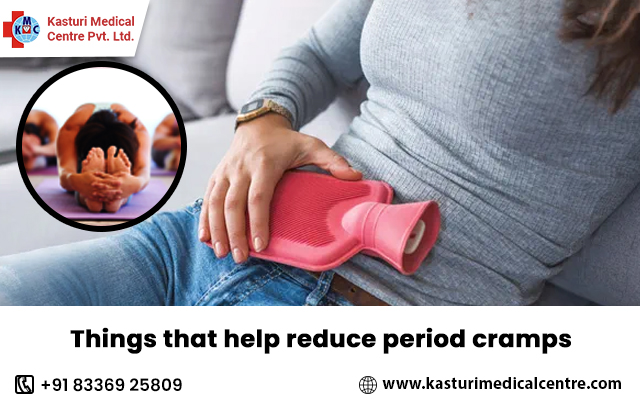Women, during their menstrual cycles, usually feel discomfort around their abdomen and lower back. However, some women during menstruation tend to experience more severe pain, a condition termed dysmenorrhea. A renowned gynaecologist in South Kolkata has talked about some effective methods to manage menstrual cramps, some of which have been discussed below.
Causes of menstrual cramps
The primary cause of period pains is the release of prostaglandins. They trigger the uterine muscles to contract and cause pain and inflammation. Other factors, such as hormonal imbalances, anatomic abnormalities, like having a retroverted uterus, and certain medical conditions, can contribute to more severe or prolonged menstrual cramps, making them challenging to manage.
Ways to alleviate menstrual cramps
- Apply heat: Doing things that relax your uterus, like putting something warm on your lower abdomen and back, can provide relief to your uterus. You can use a heating pad or take a warm bath to alleviate the pain.
- Exercise: When you are in pain, you might want to lie down and rest. But did you know that moving your body can actually help you feel better? Exercising makes your body release endorphins, which relieve pain.
- Take pain relievers: The best gynaecologist suggests taking nonsteroidal anti-inflammatory (NSAID) medications like ibuprofen in moderation as they help maintain low levels of prostaglandins in the body. That is why taking a pill just before you get your period gives you some relief from excruciating cramps.
- Opt for birth control pills: When it comes to reducing painful cramping, birth control pills are quite effective. Many women get relief from menstrual discomfort after starting these medications.
- Get your vitamins and minerals: Specific vitamins and minerals like vitamin B1 (thiamin) and magnesium have been found to reduce cramps. Hence, maintaining a healthy, nutritious diet during periods is vital. Top female gynae in South Kolkata recommends fruits and vegetables rich in these minerals, like cauliflower, oranges, spinach, and legumes, as well as nuts and seeds.
- Hydration: Staying well-hydrated is crucial during your menstrual cycle. Dehydration can aggravate cramps; hence, drink plenty of water throughout the day.
Consulting a Gynaecologist:
Persistent or severe menstrual cramps can be an indication of underlying gynaecological issues, including PCOS, endometrial cancer, or ovarian cancer. During menstruation, if you experience excessive menstrual bleeding and intense pelvic pain, along with bloating and fatigue, prompt professional guidance from a gynaecologist is crucial. Seek consultation with a reputed doctor without delay to learn the cause and receive treatment accordingly.
Following these effective methods can significantly ease period cramps and enhance your comfort. For personalised guidance, consult with the best gynaecologist to find the most suitable approach to relieve cramps.

